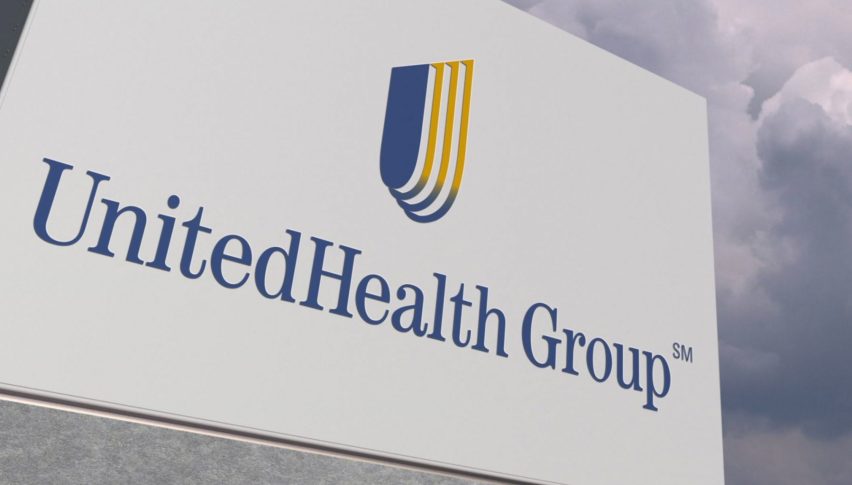United HealthCare Allegations and Q2 Miss: UNH Stock Heading to $250
Due to disappointing Q2 earnings and the reemergence of severe internal claims, UnitedHealth's stock continues its sharp decline.

Quick overview
- UnitedHealth's stock has fallen over 50% since April due to disappointing Q2 earnings and serious internal allegations.
- The company's second-quarter earnings showed strong revenue growth but a significant decline in earnings per share, raising concerns about rising medical costs.
- Allegations of unethical practices and the abrupt resignation of CEO Andrew Witty have further shaken investor confidence.
- UnitedHealth faces ongoing pressure as it navigates operational challenges and seeks to restore transparency and stability.
Due to disappointing Q2 earnings and the reemergence of severe internal claims, UnitedHealth’s stock continues its sharp decline.
Stock Slide Accelerates Amid Renewed Worries
Since mid-April, UnitedHealth Group’s stock has been on a steady decline, weighed down by investor unease over troubling allegations and abrupt management changes. After a brief period of stabilization in late May and June, the downward trend resumed in July.
The release of second-quarter results only deepened the selloff, with shares gapping lower to $265 at the open, nearly 6% below the previous close of $282.14. The stock has now plunged more than 50% from its April highs, reflecting the scale of market concern.
UNH Chart Daily – Heading to $250 Again
Earnings Miss and Cost Pressures
UnitedHealth’s second-quarter performance proved to be a mixed bag. While the company posted strong year-over-year revenue growth across key segments, its earnings per share fell significantly short of expectations. Rising medical costs took a heavy toll on profit margins, overshadowing solid performances from Optum Rx and increased domestic commercial membership.
Despite projected revenue growth for 2025, margin compression, a worsening medical cost ratio, and a cut to earnings guidance have reinforced investor fears that cost trends are outpacing pricing strategies.
United Healthcare Inc. Q2 Earnings Headline Results
- Adjusted EPS: $4.08 vs. Zacks estimate of $4.84 → 40% YoY decline.
- Revenue: $111.6B, up 12.9% YoY; slightly beat consensus by 0.1%.
- Operating Earnings: Fell 34.6% to $5.2B.
- Net Margin: Dropped 120 bps to 3.1%.
Segment & Operational Performance
- Premium Revenue & Medical Care Costs
- Premium Income: $87.9B (↑ from $76.9B YoY), beating consensus by 0.8%.
- Medical Costs: Rose sharply to $78.6B (↑ from $65.5B YoY).
Medical Care Ratio (MCR):
- Jumped to 89.4% (↑ 430 bps YoY), higher than Zacks estimate (88.6%) and internal forecast (87%).
Total Operating Costs
- Q2 Operating Costs: $106.5B (↑ 17% YoY); above model estimate of $103.8B.
- Operating Cost Ratio: Improved to 12.3% (from 13.3%) due to tech efficiency and Part D improvements.
Platform Performance
- UnitedHealthcare (Health Benefits)
- Revenue: $86.1B, ↑17% YoY; beat Zacks estimate of $84.8B.
- Earnings from Operations: Dropped to $2.1B (from $4B YoY).
- Operating Margin: Fell to 2.4% (↓ 300 bps).
Optum (Health Services)
- Revenue: $67.2B, ↑6.8% YoY, missed consensus ($67.5B).
- Earnings from Operations: Down to $3.1B (from $3.9B).
- Operating Margin: ↓ to 4.6% (↓ 160 bps).
Medical Membership
- Total Covered Lives: 50.1M as of June 30, 2025 → ↑2.1% YoY.
- Missed Expectations: Zacks (50.3M) and internal (50.2M) estimates both exceeded actual.
Balance Sheet Highlights (as of June 30, 2025)
- Cash & Short-Term Investments: $32B (↑ from $29.1B at 2024 year-end).
- Total Assets: $308.6B (↑ from $298.3B)
- Total Equity: $100.5B (↑ from $98.3B).
Debt Structure
- Long-Term Debt: $73.5B (↑ from $72.4B).
- Short-Term Debt: $5.7B.
Cash Flow & Shareholder Returns
- Operating Cash Flow: $7.2B in Q2 → triple last year’s $2.2B.
- Shareholder Returns: $4.5B in buybacks + dividends.
- Dividend Hike: +5% increase in June 2025.
Updated 2025 Guidance
- Adjusted EPS: At least $16 → down from $26–$26.50 prior guidance.
- Net Earnings: At least $14.65B (↑ from $14.4B in 2024).
- Revenue Forecast: $445.5B–$448B (↑ from $400.3B).
- Operating Cash Flow: Now $16B, down from $24.2B in 2024.
Allegations Undermine Trust
The decline in UnitedHealth’s stock was initially triggered by a bombshell report published in April, which alleged that the company engaged in ethically questionable practices to limit costly hospital admissions. According to the investigation by The Guardian, UnitedHealth made undisclosed payments to nursing homes, and internal medical staff were reportedly involved in blocking emergency hospital transfers.
These revelations have raised serious ethical and possibly legal concerns about the company’s role in influencing patient care decisions. With operations tied to over 2,000 care facilities nationwide, the scope of the claims is substantial.
CEO Departure Fuels Speculation
Investor anxiety intensified earlier this week following the abrupt resignation of CEO Andrew Witty, who stepped down citing “personal reasons.” The timing of the leadership change, combined with the company’s decision to withdraw its 2025 profitability guidance, has further rattled confidence. Many investors now interpret these developments as possible signs of deeper operational or governance issues brewing beneath the surface.
Conclusion: UnitedHealth is facing a perfect storm: disappointing earnings, soaring medical costs, troubling allegations, and executive instability. Together, these factors have cast a shadow over what was once considered a stable healthcare giant. Until the company regains control of its cost structure, addresses governance questions, and restores transparency, the pressure on its stock is likely to persist.
- Check out our free forex signals
- Follow the top economic events on FX Leaders economic calendar
- Trade better, discover more Forex Trading Strategies
- Open a FREE Trading Account



